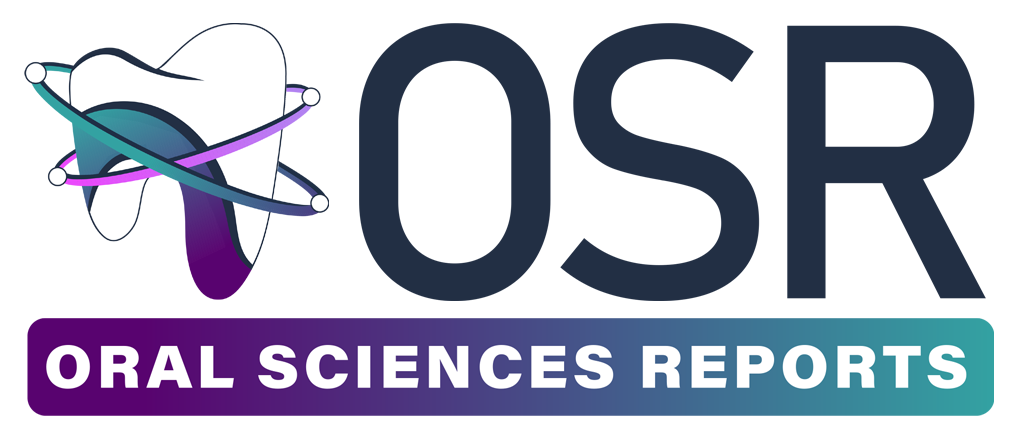Torsional Properties of Custom-made Titanium Alloy and Stainless Steel Miniscrew Implants
Nowadays, miniscrew implants are widely used for the treatment of complicated orthodontic cases with satisfactory outcomes. However, currently available products are imported, which cause high expenses in clinical practices. Therefore, the author has domestically produced custom-made miniscrew implants from medical-grade titanium alloy and stainless steel. The purpose of this study was to test the torsional properties of these miniscrews and to compare them to imported miniscrew implants in vitro. Custom-made titanium alloy miniscrew implants, custom-made stainless steel miniscrew implants, titanium alloy miniscrew implants imported from Republic of Korea and stainless steel miniscrew implants imported from Republic of China were compared. Torsion force was measured by an Instron universal testing machine until the implants broke and the twist angle of the miniscrew with maximum force was measured. The results showed that the torsional properties of the custom-made titanium alloy and stainless steel miniscrew implants were not statistically significantly different from those of the imported miniscrew implants (p>.05). Also, the comparison between custom-made titanium alloy and custom-made stainless steel miniscrew implants showed no significant difference (p> .05). In conclusion, the torsional properties of the custom-made titanium alloy and stainless steel miniscrew implants were similar to those of the imported products.
1. Manopatanakul S, Ruangpaka S. Dentists acceptance towards the use of mini-implant as temporary implant anchorage. J Thai Assoc Orthod 2005; 4: 40-46
2. Ohmae M, Saito S, Morohashi T, et al. A clinical and histological evaluation of titanium miniimplants as anchors for orthodontic intrusion in the beagle dog. Am J Orthod Dentofacial Orthop 2001; 119: 489-497.
3. Bae SM, Park HS, Kyung HM, Kwon OW, Sung JH. Clinical application of microimplant anchorage. J Clin Orthod 2002; 36: 298-302.
4. Park HS, Kyung HM, Sung JH. A simple method of molar uprighting with microimplant anchorage. J Clin Orthod 2002; 36: 592-596.
5. Manopatanakul S. Titanium mini-implant for orthodontic anchorage. J Thai Assoc Orthod 2004; 3: 43-48.
6. Sung JH, Kyung HM, Bae SM, Microimplants in orthodontics. 1st ed. Daegu; Dentos; 2007: 15-32.
7. Pickard MB, Dechow P, Rossouw PE, Buschang PH. Effects of miniscrew orientation on implant stability and resistance to failure. Am J Orthod Dentofacial Orthop 2010; 137: 91-99.
8. Lee JS, Kim JK, Park YC,Vanarsdall R. Application of orthodontic mini-implants. 1st ed. Canada; Quintesence; 2007: 29-50.
9. American Society of Testing and Material, Standard specification for wrought titanium-6 aluminium-4 ELI (Extra low interstitial) Alloy (R56401) for surgical implant applications, Designation:F136. Standard Specification for Wrought 18 Chromium 14 Nickel 2.5 Molybdenum Stainless Steel Bar and Wire for Surgical Implants (UNS S31673) Designation: F138, Annual book of American society of testing and material (ASTM) standards 1996.
10. Iijima M, Muguruma T, Brantley WA,
Okayama M, Yuasa T, Mizoguchi I. Torsional
properties and microstructures of miniscrew
implants. Am J Orthod Dentofacial Orthop
2008; 134: 333.e1-6.
11. Chaturvedi TP. An overview of the corrosion aspect of dental implants (titanium and its alloys). Indian J Dent Res 2009 ; 20: 91-98.
12. Francioli D, Ruggiero G, Giorgetti R. Mechanical properties evaluation of an orthodontic miniscrew system for skeletal anchorage. Prog Orthod 2010; 11: 98-104.
13. Carano A, Lonardo P, Velo S, Incorvati C. Mechanical properties of three different commercially available miniscrews for skeletal anchorage. Prog Orthod 2005; 6: 82-97.
14. Morarend C, Qian F, Marshall SD, et al. Effect of screw diameter on orthodontic skeletal anchorage. Am J Orthod Dentofacial Orthop. 2009 ; 136: 224-249.
15. Florvaag B, Kneuertz P, Lazar F, et al. Biomechanical properties of orthodontic miniscrews. An in-vitro study. J Orofac Orthop 2010; 71: 53-67.
16. Chao CK, Hsu CC, Wang JL, Lin J. Increasing bending strength and pullout strength in conical pedicle screws: biomechanical tests and finite element analyses. J Spinal Disord Tech 2008 ; 21: 130-138.
